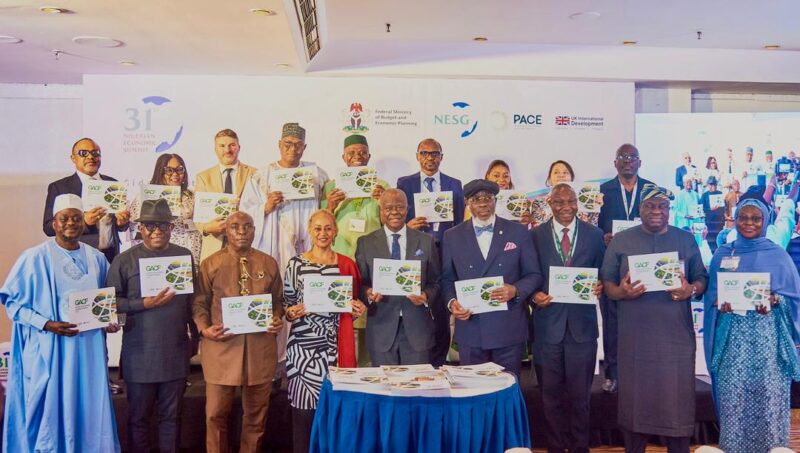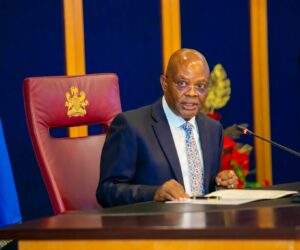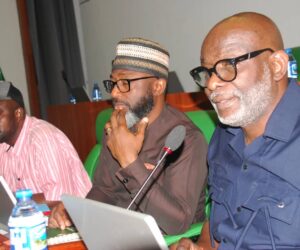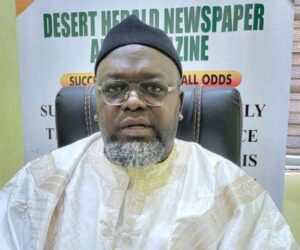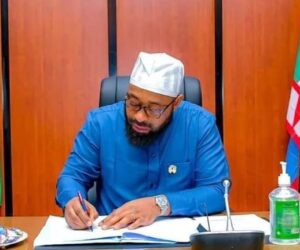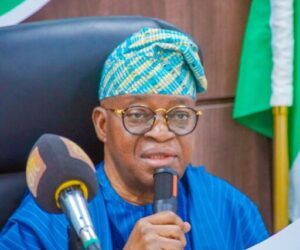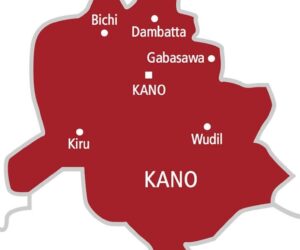1
The Minister of Budget and Economic Planning, Senator Atiku Bagudu, has reiterated the Federal Government’s commitment to mobilising climate finance and implementing policies that address the challenges of climate change across Nigeria.
Speaking at the launch of the Climate Finance Access Guide during the 31st Nigerian Economic Summit (NES31) in Abuja on Monday, Bagudu commended the Nigerian Economic Summit Group (NESG), the Policy and Climate Environment (PACE) initiative, and development partners for their support in driving Nigeria’s transition towards sustainable and resilient development.
Bagudu said the Summit and the guide come at a crucial time when climate-related challenges are worsening conflicts and displacements across the Sahel region. He noted that effective climate finance coordination at all levels of government — local, state, and federal — was essential to address these challenges and unlock opportunities.
“The full spectrum of climate financing is particularly important for a country like ours where the most horrendous drivers of conflict are climate-related,” the minister said. “Moving from the challenge to a project requires specialized skills, collaboration, and cooperation. The Ministry has established a $21 billion project preparation fund to support such initiatives.”
On his own, the Minister of Finance and Coordinating Minister of the Economy, Mr. Wale Edun, described climate finance as “smart capital” that can drive Nigeria’s economic transformation, job creation, and sustainable development.
He said the new Guide, developed by PACE UK, UKAID, the Ministry of Budget and Economic Planning, and the NESG, represents more than a document but a practical tool that will help government agencies, private firms, and communities access funding for climate resilience and green growth.
“Climate finance is not charity. It is smart capital directed toward infrastructure, innovation, technology, and people. This is the biggest opportunity of our time, and Nigeria must not stand on the sidelines,” Edun stated.
The Minister explained that under the leadership of President Bola Ahmed Tinubu, Nigeria is creating a level playing field where innovation and investment, rather than privilege, define success. He emphasized that climate change has become a daily reality across the country, with flooding, drought, and extreme weather affecting livelihoods in every region.
“Climate action is not a burden; it is an investment — in jobs, health, education, and the well-being of our children,” he said.
Also speaking virtually, Senior Specialist at the Green Climate Fund (GCF), Marcus Mayr, said the Fund — the largest global climate financing institution — has invested over $15 billion in climate projects worldwide, mobilizing double that amount from private and public investors.
Mayr reaffirmed GCF’s readiness to support Nigeria in transforming its Nationally Determined Contributions (NDCs) and National Adaptation Plans (NAPs) into actionable, bankable projects.
“We are ready to deploy our readiness program to help Nigeria build institutional capacity, develop feasibility assessments, and mobilize both public and private climate finance. “We are working closely with the National Council on Climate Change (NCCC) and other partners to ensure improved access to GCF resources,” he said.
“Our main goal is to support countries like Nigeria to implement their transition to a low-emission and resilient society,” he stated. “Congratulations to Nigeria on launching its third Nationally Determined Contributions (NDCs); the GCF stands ready to support the country’s ambition.”
He emphasized that the GCF’s approach is not merely financial but aimed at reaching the most vulnerable communities, strengthening resilience, and fostering large-scale investments across sectors such as energy, agriculture, transport, and water security.
In her remarks, the Deputy National Team Leader at PACE, Dr. Titi Fakoya, said the new Climate Finance Access Guide would help stakeholders, particularly State Governments and the private sector, move from discussions to concrete action.
“The Guide helps you organize your plans so that funders see credibility, and teams know exactly what to do,” she explained. “The checklists are practical and aligned with what lenders and investors check before they move money.”
She outlined key next steps within 90 days, including completion of checklists by States and businesses, identification of capacity gaps, and preparation of at least one fund-ready concept note.
Fakoya emphasized inclusion as a central principle, noting that “when women and communities are part of the work, projects are stronger and last longer.”
The event brought together representatives from government, private sector, international partners, and civil society, all committed to accelerating Nigeria’s access to climate finance and supporting its sustainable development agenda.

